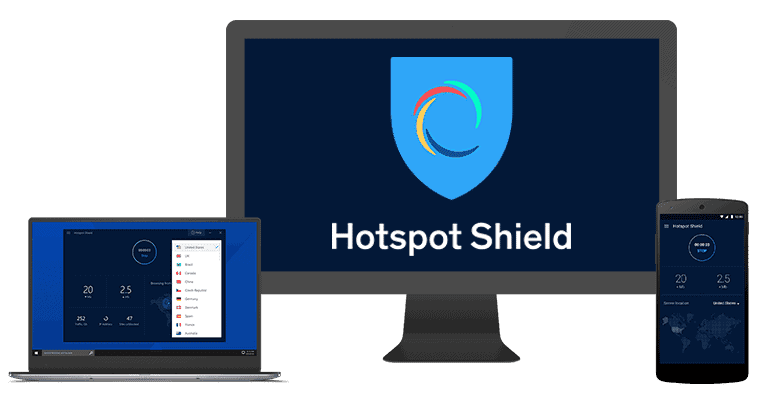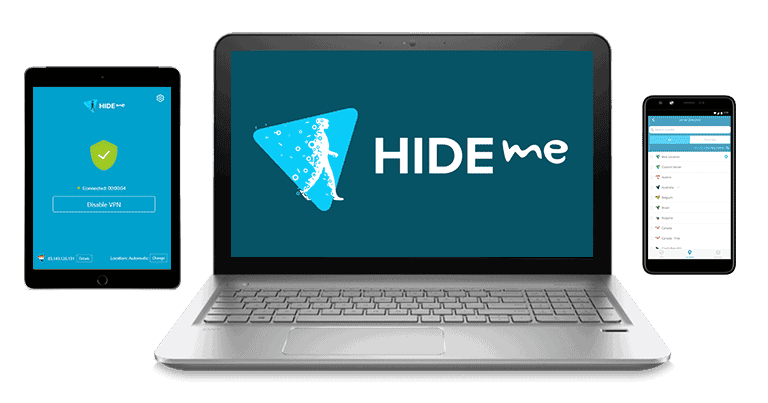
Updated on: November 22, 2024
Short on time? Here’s the best free VPN for China in 2024:
- 🥇 ExpressVPN : While it's not free, it’s the best VPN for China and covers all plans with a 30-day money-back guarantee, so you can try it risk-free. It hides your VPN traffic from China’s deep packet inspection and allows access to the open internet. It has advanced security features to protect you from government monitoring in China, offers the fastest speeds in the industry, and works with 100+ streaming sites, as well as popular social media apps like Instagram and Snapchat.
After weeks of research, I found the best free VPNs that work in China. They are very secure and hide your online activities from the Chinese government. Note that the completely free VPNs on my list may not work 100% of the time, but I also share troubleshooting tips. Also, these free VPNs come with some limitations, like daily or monthly data caps and small server networks.
For the most reliable connections in China, I recommend a premium VPN. My top pick, ExpressVPN, works virtually all of the time in China and includes unlimited data, access to 100+ streaming sites, and excellent privacy to keep your online activities anonymous from the Chinese government. You can even download the VPN privately from China via a mirror link. Editors' Note: ExpressVPN and this site are in the same ownership group.
Quick Summary of the Best Free VPNs for China in 2024
Using a VPN in China could be against the law. Chinese laws regarding VPNs are very strict, especially with companies and institutions, and they affect both residents and visitors. While there are no known cases of the government penalizing foreigners or residents for VPN use, it’s wise to exercise caution. I neither promote nor condone the use of VPNs for illicit purposes, including copyright infringement, and I recommend doing proper research and complying with all local rules and guidelines.
🥇 1. ExpressVPN — Best Overall VPN for China

ExpressVPN is my favorite VPN for China in 2024. It reliably works in China thanks to obfuscated servers that hide the fact you’re using a VPN, it has the fastest speeds in the industry, and it provides unlimited data. The VPN isn’t free, but it’s backed by a 30-day money-back guarantee, so you can test it risk-free.
I like how all of its servers automatically obfuscate your VPN traffic, so you don’t have to worry about your Chinese internet service provider (ISP) detecting your VPN use — most VPNs require you to manually enable obfuscation. The Great Firewall uses deep packet inspection (DPI) to detect and block VPNs that it doesn’t approve of, but obfuscation scrambles your VPN data so that it looks like normal internet traffic. This makes it much more difficult for the Chinese government to detect and block your VPN connection.
The ExpressVPN site is inaccessible in China, so if you’re already in the country, you can ask its email reps to send you a mirror URL (a duplicate site address that’s not blocked) to download the VPN on all of your devices. ExpressVPN offers excellent customer support via email — its representatives typically take no more than 2–3 hours to respond and will provide you with tips for troubleshooting your connection while in the country.
ExpressVPN takes your online privacy seriously. It has a no-logs policy that has passed multiple independent audits, which confirms the VPN doesn’t collect any information about your online activity and doesn’t have anything to share with the Chinese government even if a court requests it.
I also feel extra safe knowing that it uses TrustedServer technology, which means that ExpressVPN uses RAM-only servers — each time a server is rebooted, all of your data is wiped away. This is particularly important when you’re in China because it minimizes the risk of the Chinese government accessing your data and information.

ExpressVPN offers excellent speeds in China — even with obfuscation, which usually slows down your connection due to the extra encryption and rerouting. This is thanks to its proprietary Lightway protocol, which uses fewer lines of code but doesn’t sacrifice security. Plus, it has lots of servers in nearby locations like Hong Kong, Taiwan, and Japan for getting the best speeds possible.
ExpressVPN allows you to securely stream from China. It works with 100+ streaming sites and can access different Netflix, Amazon Prime, and Disney+ libraries, as well as sites like Hulu and BBC iPlayer. It can also access Instagram and similar social media apps from China, as well as Google, messaging apps, and more.
ExpressVPN keeps you safe online with other great security features. Its Threat Manager feature blocks apps and sites from communicating with trackers, so the Chinese government can’t monitor you through cookies and scripts, and it protects you from shady websites. What’s more, ExpressVPN comes with full leak protection — when I tested 10 different servers, I didn’t find any DNS, IPv6, or WebRTC leaks.
ExpressVPN’s plans start at $4.99 / month. The VPN also often offers special discounts with extra months for free. You can even pay in cryptocurrency for better privacy and via international processors like UnionPay.
Bottom Line:
ExpressVPN is the best VPN for China in 2024 — it has obfuscation on all servers, so you can connect to any of its server locations while in China, maintains blazing-fast speeds, can access 100+ streaming sites from China, and protects your privacy from the Chinese government with advanced security features. Plus, it offers excellent customer support that can help you download the VPN in China and troubleshoot your connection if needed. It’s not free, but it offers a 30-day money-back guarantee for all plans, so you can try it without risk.
Read the full ExpressVPN review
🥈2. Hotspot Shield — Fast, Free, Unlimited-Data VPN to Browse the Web in China

Hotspot Shield’s free plan offers unlimited data and maintains fast speeds, allowing you to browse the internet from China without data limits and annoying slowdowns. This is thanks to its proprietary Hydra protocol, which is available on the free plan — Hydra obfuscates your VPN traffic and offers super-fast speeds due to its lightweight code. In my tests connected to a free server using Hydra, my speeds were fast enough to stream in HD.
Its free plan works in China most of the time, but there’s no guarantee it’ll always work there. If you’re looking for more consistent access to the web in China, try ExpressVPN.
The free version includes access to servers in 3 countries — they’re located in the US, the UK, and Singapore, which is the closest one to China and will give you the best speeds. One of my biggest complaints with Hotspot Shield’s free plan is you have to watch ads every 15 minutes.

Hotspot Shield keeps your online experience in China private and secure with advanced features. You get DNS leak protection and the VPN has a strict no-logs policy (though it hasn’t yet been audited). There’s also no streaming support on the free plan, but it does work with social media sites like Facebook and messaging apps like WhatsApp.
I like that you can use Hotspot Shield’s free version without signing up. This creates an extra layer of privacy because you don’t have to provide any personal information. It also means you can use the VPN on as many devices as you want — logging into an account on the free plan restricts you to a single device at a time.
If you need help in China with getting the VPN to work, you can reach out to its customer support reps via email and ask for a mirror link to get the apps you need for your devices from China. When I emailed them, I got a response in about 7 hours, which is pretty decent.
Hotspot Shield’s paid plans start at $2.99 / month, and they provide access to all server locations and streaming and torrenting support, as well as 24/7 live chat. In addition, all plans come with a generous 45-day money-back guarantee.
Bottom Line:
Hotspot Shield has a very fast free VPN that works in China. The free plan includes its proprietary Hydra protocol that obfuscates your traffic and is fast. You also get unlimited data, but you have to watch an ad every 15 minutes and you get access to only 3 server locations. Upgrading to the premium plan gives you access to Hotspot Shield’s extensive server network and streaming and torrenting support.
Read the full Hotspot Shield review
🥉3. Windscribe — Good Free Server Selection for China

Windscribe lets you connect to lots of free server locations from China. It includes 10+ free server locations, including in the US, UK, Canada, and even Hong Kong. Its speeds on the free plan are pretty good for browsing and streaming in China, too.
Windscribe obfuscates your traffic via the Stealth or WStunnel protocol. The Stealth protocol hides your VPN traffic from your Chinese ISP in a secure tunnel (TLS tunnel). and the WStunnel protocol encapsulates your traffic using WebSocket. Still, the free plan might not work in China 100% of the time — if that’s a dealbreaker for you, again, consider getting ExpressVPN.

The VPN comes with RAM-only servers and a no-logs policy, though it’s never been audited. You also get limited access to R.O.B.E.R.T on the free plan, which is a pretty good ad blocker.
Windscribe’s free servers access sites like Netflix and Amazon Prime from China, as well as apps like Snapchat, TikTok, and Instagram. That said, there’s a data cap of 2 GB per month, which is about enough to stream for an hour in HD. You can increase the data cap by 10 GB per month if you provide your email address and get an extra 5 GB per month if you post about Windscribe on X. Plus, I like how the VPN allows unlimited connections.
You can reach out to its customer support reps via email, even on the free plan, if you need files to download the VPN from China or get help with troubleshooting. In my tests, it took support reps up to 24 hours to respond, and they were pretty helpful.
Windscribe also has premium plans starting at $3.00 / month, giving you access to all of its servers in 68 countries and unlimited data. There’s only a 3-day refund for all plans.
Bottom Line:
Windscribe is a great free VPN that works in China with a very good free server selection, including one in Hong Kong, which is great for getting the best speeds possible. It maintains good speeds, allows unlimited device connections, and you get access to its email support reps. Unfortunately, it comes with a data cap that starts at 2 GB. Upgrading to its premium plan gives you access to unlimited data and Windscribe’s full server network, including servers in Singapore.
Read the full Windscribe review
4. hide.me — Good Security Features for Browsing the Web in China

hide.me is great for safely browsing the open web from China. It includes RAM-only servers, full leak protection, and an audited no-logs policy, and it doesn’t require an email address to create a free account.
The VPN avoids DPI blocks in China by obfuscating your traffic when you use the OpenVPN protocol, though hide.me recommends trying the SSTP protocol in China (and disabling the Fallback Protocol option).The VPN’s reps told me the free plan works well in China, but they can’t guarantee 100% uptime — with ExpressVPN, that’s not an issue.
hide.me gets good speeds on nearby servers but I was a bit disappointed with long-distance speeds during my tests. However, it has unlimited data, so you can browse the free web in China as much as you want.

The VPN gives you access to servers in 5+ countries, such as the US, UK, and Germany, which can access apps like TikTok and Instagram, but there are no free servers near China (the closest one is in the Netherlands), so you’ll likely get less than ideal speeds most of the time. The good news is you can filter its 5+ free server locations by ping, which allows you to pick the fastest server location available. A downside, however, is that the free plan allows only 1 device connection at a time, and there’s no streaming or torrenting support.
hide.me’s paid plans start at $2.29 / month, and they provide unlimited data and access to the provider’s full server network. All of hide.me’s plans are backed by a 30-day money-back guarantee.
Bottom Line:
hide.me provides strong security features that keep you safe on the web in China. In addition, it maintains good speeds on nearby servers, has 5+ free server locations, and offers unlimited data, so you won’t have to restrict your time online to safely go online in China. Unfortunately, it has slow speeds on long-distance servers, and there’s no streaming support. Upgrading to its paid version gives you access to a full server network and perks like streaming support.
5. TunnelBear — User-friendly VPN for China

TunnelBear is great for beginners who need a free VPN in China — it has a very intuitive dashboard and is simple to use. All of its features are available on the free plan, including its obfuscation feature, GhostBear, which is very easy to find and enable (under Connections).
GhostBear hides VPN traffic very well from your Chinese ISPs and government and works on the OpenVPN protocol. It has no problem getting around DPI blocks by Chinese ISPs — even on the free plan. The free plan supports streaming, too, and works with popular apps like WhatsApp and Snapchat.

TunnelBear lets you connect to any of its server locations in all 47 countries on the free plan, including regions close to China, like Japan, Taiwan, and South Korea. It’s also very easy to find a nearby server in the app thanks to the interactive map in the apps. However, this server network is a lot smaller compared to ExpressVPN’s.
The biggest downside is that you only get 2 GB of free data a month, which means only a couple of hours of securely browsing from China. For more online time, Hotspot Shield gives you unlimited data.
TunnelBear’s paid plans start at $3.33 / month, and there’s no money-back guarantee (but you get access to all features on the free plan).
Bottom Line:
TunnelBear is a great free VPN for beginners in China. Its GhostBear feature, which bypasses Chinese ISP blocks, is easy to enable and you get access to servers in all 47 countries. Plus, its apps come with an interactive map that makes it simple to find the closest server location for the best possible speeds when going online in China. Upgrading to its paid version gets rid of the 2 GB monthly data cap.
Read the full TunnelBear review
Quick Comparison Table
Editors' Note: ExpressVPN and this site are in the same ownership group.
Testing Methodology: Comparison & Ranking Criteria
To find the best free VPNs for China, I used our proven testing methodology to determine each VPN’s ease of use, speeds, security and privacy, user-friendliness, and overall value. Here’s what I tested for this list:
- I ensured that the VPN works in China. All of my VPN recommendations can bypass China’s firewall without detection. I prefer using ExpressVPN because it’s the most reliable when it comes to letting you use a VPN in China. It offers top-notch customer support for China via email and even has mirror URLs to download the VPN within China.
- I looked for a VPN with strong security. A VPN should keep your data safe while online in China. All VPNs listed here come with industry-standard security features like 256-bit AES encryption, DNS leak protection, and a kill switch that disables your internet connection should your VPN connection ever drop.

- I made sure the VPN offers enough data. Free VPNs often come with data caps that are just enough for a few hours of browsing. If you want to use the VPN for streaming, gaming, or video calls, make sure you choose a free plan that has at least 5 GB per month.
- I checked each VPN’s server network for China. Most VPNs on my list have free servers near China, which get you better speeds when browsing and streaming the web, especially with obfuscation on. Most can access top streaming services like Netflix and social media and messaging apps like Instagram and WhatsApp on the free plans, too.
- I tested each VPN’s speeds for reliable and fast connections. Many VPNs that do work in China have slow connections. ExpressVPN had the fastest speeds and most stable connections during my tests.

- I only recommend VPNs that provide good value. I only recommend VPNs that have affordable paid plans that provide access to more extra security features, better speeds, and larger server networks. Also, the paid plans should be covered by a money-back guarantee.
Risks & Disadvantages of Using a Free VPN
- Limited security. Free VPNs often lack the advanced security features that paid VPNs offer, such as an ad and malware blocker, full leak protection, and obfuscation. This makes them more vulnerable and less likely to work with the Great Firewall of China. Luckily, all of the VPNs I mentioned in this article work in China.
- Privacy issues. Free VPNs might gather and trade your information to sell to advertisers as a means of profit. This undermines one of the primary reasons for using a VPN — to safeguard your internet privacy.
- Limited server options. Free VPNs have a small server network. This can greatly compromise your speed, as you could be forced to connect to a distant or overcrowded server.
- Data restrictions. Free VPNs limit how much data you use on a daily and monthly basis, which means you may only have a couple of hours of browsing or streaming. The time limit reduces significantly in China since you also have to use obfuscation for the VPN to work with the Great Chinese Firewall.
- Slow speeds. VPN providers often throttle speeds on free plans. This can result in slow speeds and annoying interruptions. Fortunately, most of the VPNs I mention here don’t limit your speeds.
- No customer support. Access to helpful customer support from China is of great help if your VPN stops working or has trouble connecting. Most VPNs don’t include customer support for free users and the majority of free VPNs don’t have any kind of support at all. The VPNs I recommend here have email support you can reach out to for help from China.
Free vs. Paid VPNs for China
It’s important that the VPN you use in China protects your data and privacy. Every VPN on my list has advanced security features including a kill switch, 256-bit AES encryption, and a strict no-logs policy. Some also include extra features like RAM-only servers and perfect forward secrecy for enhanced privacy.
The majority of free VPNs lack other important features, though, such as large server networks, unlimited data and speeds, and multiple device connections. There’s also usually a lack of streaming and torrenting support.
Here are some examples: hide.me has unlimited data but doesn’t have streaming support or multiple device connections. Windscribe only allows 10 GB of data per month but has decent streaming support and unlimited connections.
In comparison, premium VPN plans have a lot more to offer, including unlimited data, server networks with dozens or hundreds of locations, can access top streaming services, allow torrenting, offer unlimited speeds, and more. Plus, these plans almost always have money-back guarantees.
All things considered, there are some good free VPNs (like the ones on my list), but paid plans are much better overall.
Having Issues With Your Free VPN in China? Try These Troubleshooting Steps
- You can’t access the VPN provider’s website to download the VPN. Reach out to its customer support via email. They’ll be able to provide you either with a mirror link of the website that’s not blocked in China or send you the download files via email.
- The VPN app can’t connect to the server. Make sure the obfuscation feature is on and then try different VPN protocols. If your VPN allows it, configure it to route all traffic through port 443 (Windscribe lets you do this on the free plan). This port is commonly used for HTTPS traffic, making it less likely to be blocked by the Chinese government. If your VPN doesn’t allow you to pick port 443, opt for TCP over UDP traffic — TCP is less likely to be blocked outright, as it closely resembles normal web traffic.
- The VPN disconnects frequently. Change to a different network (e.g., from Wi-Fi to mobile data) to see if the issue persists. If you’re also using a proxy, disable it, as it might interfere with the VPN’s connection.
- Slow VPN speeds. Choose a server location that’s closer to China to reduce latency and turn off features like double VPN that can slow down your connection. Some VPNs also allow you to choose a lower encryption standard like 128-bit AES which improves speeds on really slow networks. Finally, check if other apps are consuming bandwidth and close them if necessary.
- Specific websites are inaccessible. Remove outdated and corrupted data from your browser to prevent interference with your connection. If that doesn’t work, try a different browser or use private/incognito mode to avoid cached data, cookies, or extensions that may cause conflicts.
Free VPNs to Avoid
- VPN – Super Unlimited Proxy. This VPN collects information like device data and may share anything it keeps with authorities and third parties, like its ad partners.
- Vpnify. This VPN collects usage and cookies data, like information about your browser, timestamps, and your IP address, as well as device information. It also shares this data with third parties and authorities.
- SuperVPN. SuperVPN is dangerous to use because it logs your personal details like your browser type, IP address, and more. Plus, it lacks many important security features and has suffered a large data breach in the past.
- Hola VPN. Hola VPN also isn’t very safe. It’s a P2P VPN, which means you get someone else’s IP address when you connect to a server (and someone else can use yours). This means other people can conduct unethical or illegal behavior using your IP address, which puts you at risk. It also has a poor history with user privacy.
- Phone Guardian. Phone Guardian is really limited, as it only encrypts your data. It doesn’t have any other features that a normal VPN does, like changing your location and IP address, so it’s not very useful.
- Hoxx VPN. Hoxx VPN isn’t good for protecting your privacy, as it logs your information (including your IP address and online activities). Plus, it “may” hold onto this information even after you stop using the VPN.
- TouchVPN. TouchVPN has a really large server network for a VPN (80+ locations), which is impressive, but it logs your IP address and your browsing history.
- TuxlerVPN. TuxlerVPN has shady privacy policies that state it keeps your browser information, contact info, and website activities. It also shares this information with third-parties.
- AceVPN. AceVPN lacks essential security features like a kill switch, doesn’t have any device apps (which means you have to manually configure it), and has only a few server locations to choose from.
Top Brands That Didn’t Make the Cut
- IPVanish. This is a premium VPN that offers unlimited connections and good speeds for torrenting and gaming, but unfortunately, it doesn’t work in China.
- NordVPN. NordVPN is a user-friendly VPN with advanced security features and a strict no-logs policy. However, it doesn’t work in China.
- Proton VPN. A free VPN with unlimited data and very good security and privacy features. However, it doesn’t work in China.
Frequently Asked Questions
Is it legal to use a VPN in China?
Only government-approved VPNs are legal in China. This means that VPN providers have to obtain a license to operate within the country. However, a VPN that has been approved by the Chinese government still doesn’t offer online freedom because it would have to log and share your data with the authorities.
Theoretically, it’s possible to use a non-approved VPN in China. That said, you could get fined for using a non-approved VPN. However, there have been no reports of any foreigners in China being punished for the use of non-approved VPNs.
What if my VPN stops working in China?
If you use any of the VPNs on my list, this shouldn’t happen. I recommend using ExpressVPN because it has obfuscation on all its servers and advanced security features, and it’s been verified to work in China.
That said, if you are experiencing issues, you can go through the recommended troubleshooting steps I list here, like making sure the obfuscation feature is on and trying different VPN protocols and servers. If none of the above works, you should reach out to the customer support team — they might have some unique tips to help you get the VPN working!
How do I improve my speeds in China on a free VPN?
There are a couple of things you can do to try to improve VPN speeds in China on a free VPN. The first thing you should do is disable any features that might slow down your connection like double VPN. Then, make sure to connect to a nearby server to reduce latency.
If that doesn’t do much to help, you can opt for a lower encryption standard like 128-bit AES if available and close bandwidth-consuming apps. If speeds remain slow, consider upgrading to an affordable VPN like ExpressVPN, which includes a large server network with many nearby server locations, super-fast speeds, and lots of extra features.
How do I set up a free VPN on my device in China?
Just download and install the VPN app from the provider’s site or the app store. Follow the setup instructions, connect to a server location, and enjoy being able to use the internet with a VPN.
However, keep in mind that the Google Play Store is blocked in China. This means that it’s important to download your VPN before traveling to China. If you forget to do that, I made sure that every VPN on this list offers an APK file link, so that you can manually download and install the VPN on your Android phone in China. And some VPNs, including ExpressVPN, also have mirrored URLs for an alternative way to sign up and download.
Can I use a free VPN for streaming in China?
Maybe, but it’s unlikely to work well. Free VPNs don’t usually work well in China or with streaming sites — the free VPNs I recommend say their free plans work in China, but they can’t guarantee 100% uptime.
Instead, I recommend getting an affordable paid VPN like ExpressVPN, which can access 100+ streaming platforms, including Netflix, Disney+, Amazon Prime, iQIYI and Youku, and works in China without issues.
